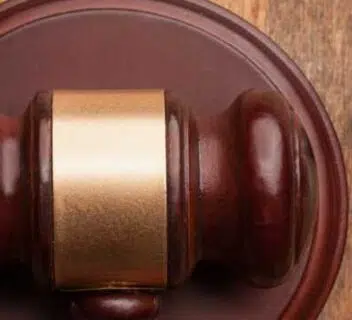What Does a Personal Injury Lawyer Do?
A personal injury lawyer, also known as a plaintiff lawyer or trial lawyer, is a civil litigator who provides legal representation to plaintiffs alleging a physical or psychological injury as a result of negligence or carelessness of another person or entity.
A personal injury lawyer will help their clients receive compensation for their losses, including lost wages due to the inability to work, pain and suffering, reasonable medical expenses, emotional distress, loss of consortium or companionship, and even legal costs/attorney fees. These lawyers help protect their clients from being taken advantage of by insurance companies and the legal system.
Some of the most common types of cases handled by personal injury lawyers include:
- Dog bites
- Car accidents
- Aviation accidents
- Bicycle accidents
- Boating accidents
- Burn injuries
- Brain injuries
- Construction accidents and other workers’ compensation issues
- Defective products
- Medical practice
- Insurance/bad faith
- Slip and fall injuries
- Wrongful death
Hiring a personal injury attorney does not mean that your case will proceed to trial. In fact, the majority of personal injury cases are settled out of court.
Hiring a personal injury attorney allows plaintiffs to protect themselves against low offers from insurance companies and defendants because they have someone looking out for their best interests.
Due to the vast array of cases that fall under personal injury as well as complexities within the law, lawyers may decide to specialize in one particular area. For example, it is not uncommon for a medical malpractice lawyer to specialize in birthing cases, etc.
Steps Before Settlement
During the settlement negotiation and litigation process, contact with your lawyer may be infrequent.
Initially, your attorney will be busy with gathering facts to establish the foundation of your case. This may include obtaining witness statements, getting access to photographs and video footage, and obtaining official police reports. Regardless, you should still be able to call your attorney’s office and get updates on a timely basis.
Your attorney will not be able to proceed with your case until you have been released by your doctor and have recovered from your injuries, or at least stabilized. Once this happens, your lawyer will have a better idea of the injuries you sustained, the costs associated with your injuries, and any ongoing pain and suffering. Gathering your medical reports, employment reports, and other items needed to document each element of your injuries and damages are dependent on how quickly health care providers and your employer can prepare them.
Your personal injury lawyer will then solicit an offer from the insurance company. When an offer is received, your attorney will send it to your for review and discuss possible ways to move forward, based on his or her experience.
If a fair settlement cannot be obtained, your attorney will likely file a lawsuit or demand arbitration. Your lawyer will need to go through the “discovery” stage of deposing witnesses and experts in order to substantiate your claim. After discovery is completed, a trial date is set based on how busy the court is where the lawsuit is filed.
It can be extremely beneficial to work with a personal injury lawyer because you’ll have someone working for the best outcome on your behalf.




